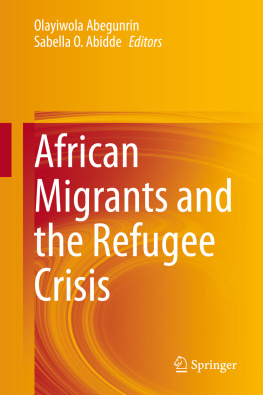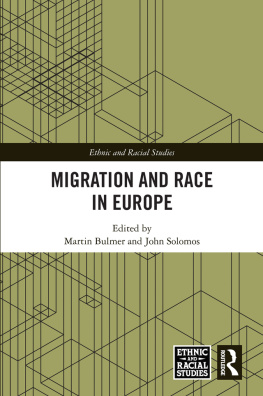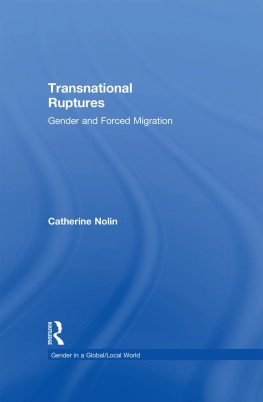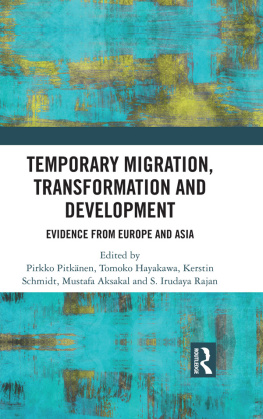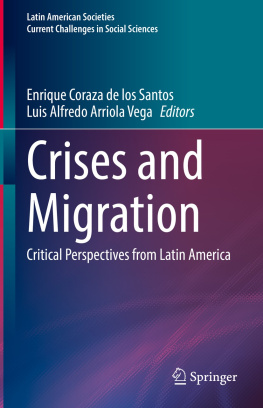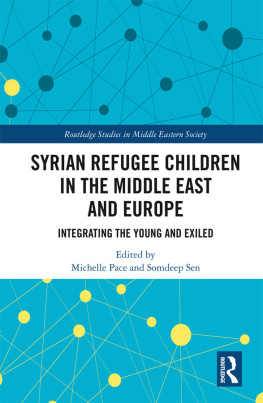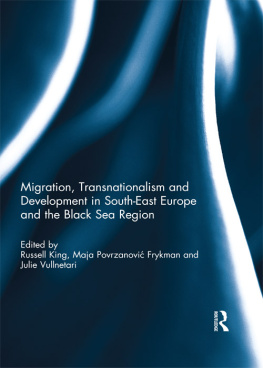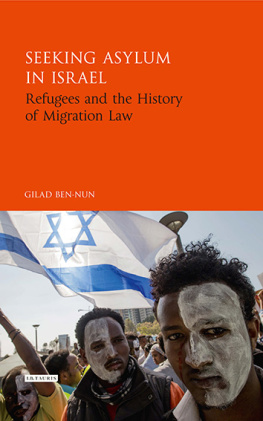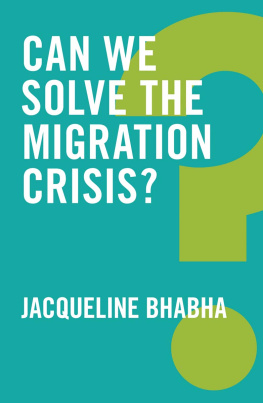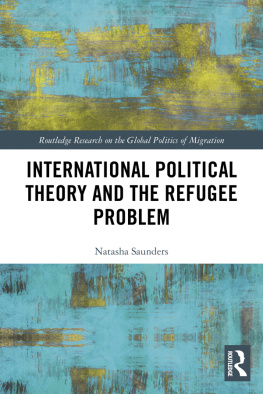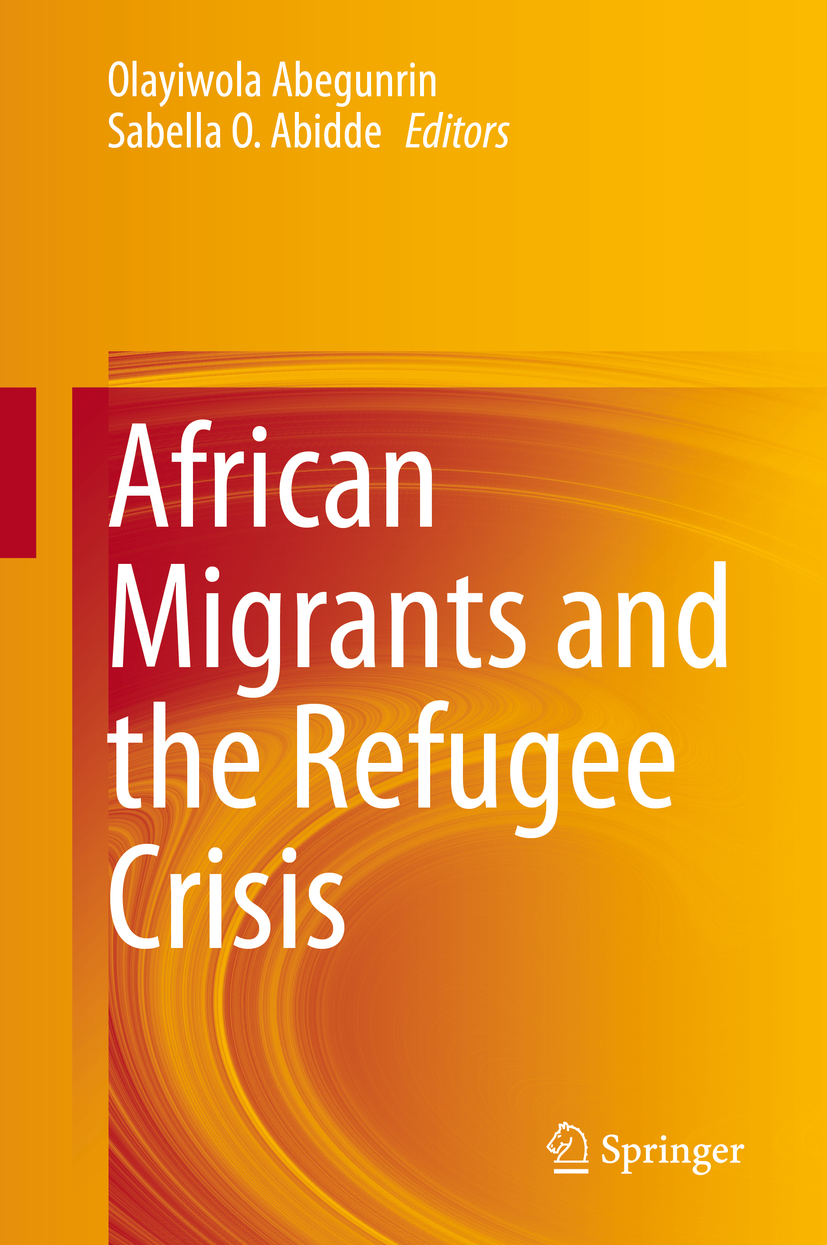Editors
Olayiwola Abegunrin and Sabella O. Abidde
African Migrants and the Refugee Crisis
1st ed. 2021
Editors
Olayiwola Abegunrin
University of Maryland, Hyattsville, MD, USA
Sabella O. Abidde
Department of History and Political Science, Alabama State University, Montgomery, AL, USA
ISBN 978-3-030-56641-8 e-ISBN 978-3-030-56642-5
https://doi.org/10.1007/978-3-030-56642-5
Springer Nature Switzerland AG 2021
This work is subject to copyright. All rights are reserved by the Publisher, whether the whole or part of the material is concerned, specifically the rights of translation, reprinting, reuse of illustrations, recitation, broadcasting, reproduction on microfilms or in any other physical way, and transmission or information storage and retrieval, electronic adaptation, computer software, or by similar or dissimilar methodology now known or hereafter developed.
The use of general descriptive names, registered names, trademarks, service marks, etc. in this publication does not imply, even in the absence of a specific statement, that such names are exempt from the relevant protective laws and regulations and therefore free for general use.
The publisher, the authors and the editors are safe to assume that the advice and information in this book are believed to be true and accurate at the date of publication. Neither the publisher nor the authors or the editors give a warranty, expressed or implied, with respect to the material contained herein or for any errors or omissions that may have been made. The publisher remains neutral with regard to jurisdictional claims in published maps and institutional affiliations.
This Springer imprint is published by the registered company Springer Nature Switzerland AG
The registered company address is: Gewerbestrasse 11, 6330 Cham, Switzerland
Olayiwola Abegunrin (June 6, 1944April 14, 2020)
Death is inescapable. Even so, some people have impacted our lives and the lives of many others so much so that we wish and pray they would never die, that they would never leave us. Olayiwola Abegunrin was such a man. Therefore, I mourn the passing of my teacher, my mentor, and my friend. But most importantly, I celebrate his life. It was a life well lived!
Sun re o
Ki Olorun fi orun ke Olayiwola omo Abegunrin. Ase!!!
Preface
This edited volume is the brainchild of Professor Olayiwola Abegurin. Unfortunately, he passed away on Tuesday, April 14, 2020, after a protracted illness. I had known Professor Abegunrin since the fall of 2005 when I began my doctoral studies at Howard University. In the intervening years, I sought his advice, opinion, guidance, and support on many matters. Other than family members, he was the only constant presence in my life during that period. He was the one who made my foray into academic research and publishing possible. He had a wide range of interests. He called me in early August 2018 to talk about this edited volume. I was not quite ready because I was working on other projects. Two weeks thereafter, I called him to say I will make room for this collective effort. So here we are.
At the time we started work on this project, there was constant reportage of Syrian and Middle Eastern refugees finding their way to Europe and North America. Also, the voluntary and forced movement of an unusually high number of Africans to Europe and other parts of the world was dominating the news cycle in Europe, North America and elsewhere. The social media was awash with news of Africans, dead and dying, in the Sahara Desert and at sea while trying to reach their transit or destination. At the height of the crisis, some European governments were closing their borders or making entry difficult or impossible, while many of their citizens saw African immigrants and refugees as pollutants. This attitude and rejection of the Africans were not universal, though. Many countries and citizens of these countries accommodated and provided for the immigrants and refugees.
But on the African continent, many governments were indifferent to the plight of their people, while other governments simply did not have the wherewithal to stem the tide of these voluntary and forced movements. But, beyond that, many governments were simply ineffectivelacking the capacity for good governance and the provision of political and economic goods. While many factors compel Africans to move, economics played the most prominent and important role in the lives of African migrants. The economic conditions in many African countries are such that it debases their humanity. It calls into question the legitimacy of many governments, it calls into question the sanity and humanity of many African leaders, and it also calls into the questions the international systema system that allows or condones African leaders and elites as they maim, terrorize, and kill their people.
Religious and ethnic conflicts, natural disasters, severe economic conditions, and political repression all contribute to the forced movement of people. Many governments cannot impartially adjudicate conflicts or provide for those affected by manmade or natural disasters. The despair and desperation in many states and societies force many Africans to seek safety, security, civil liberties, and other lifes necessities in places where such services are routine. However, beyond the cruelty and the absence of good leadership is a network of Africans and their foreign proxies who delight in and profit from the forced movement of people.
While the Civil Society and other agencies have a role to play in reducing the flow of migrants and refugees, it is the responsibility of the 54 governments on the African continent to provide the conditions that discourage certain categories of migratory movements. Working on this edited volume has not been easy. In addition to the usual problems and challenges associated with edited books, I, as with Abegunrin, had suffered health crisesnecessitating multiple trips to the emergency room of our local hospital. And of course, there were family and work issues to attend to. Nevertheless, through it all, this book had to be completed. It was that important.
Olayiwola Abegunrin
Sabella O. Abidde
Hyattsville, MD, USA Montgomery, AL, USA
Acknowledgment
No one writes a book without debts, appreciation, and acknowledgments. So, we would like to thank and acknowledge Lorraine Klimowich who diligently and patiently took us through the proposal and contract process. Her professionalism was beyond reproach. We would also like to thank Maria David and Faith Su for seeing us through the production process. And to Rockey Samuel Savita, thank you!
Dr. Elisha Jasper Dung was very helpful with some of the formatting. Professor Alem Hailu (Department of African Studies, Howard University) and Dr. Paul Erhunmwunsee (Professor of Geography and former Chair Criminal Justice and Social Sciences at Alabama State University) were very generous with their feedback.
We would also like to thank all the contributors who were very patient with us despite the many months of delays. And finally, our words of thanks and appreciation to the anonymous reviewers for their confidence in our work. Thank you!

